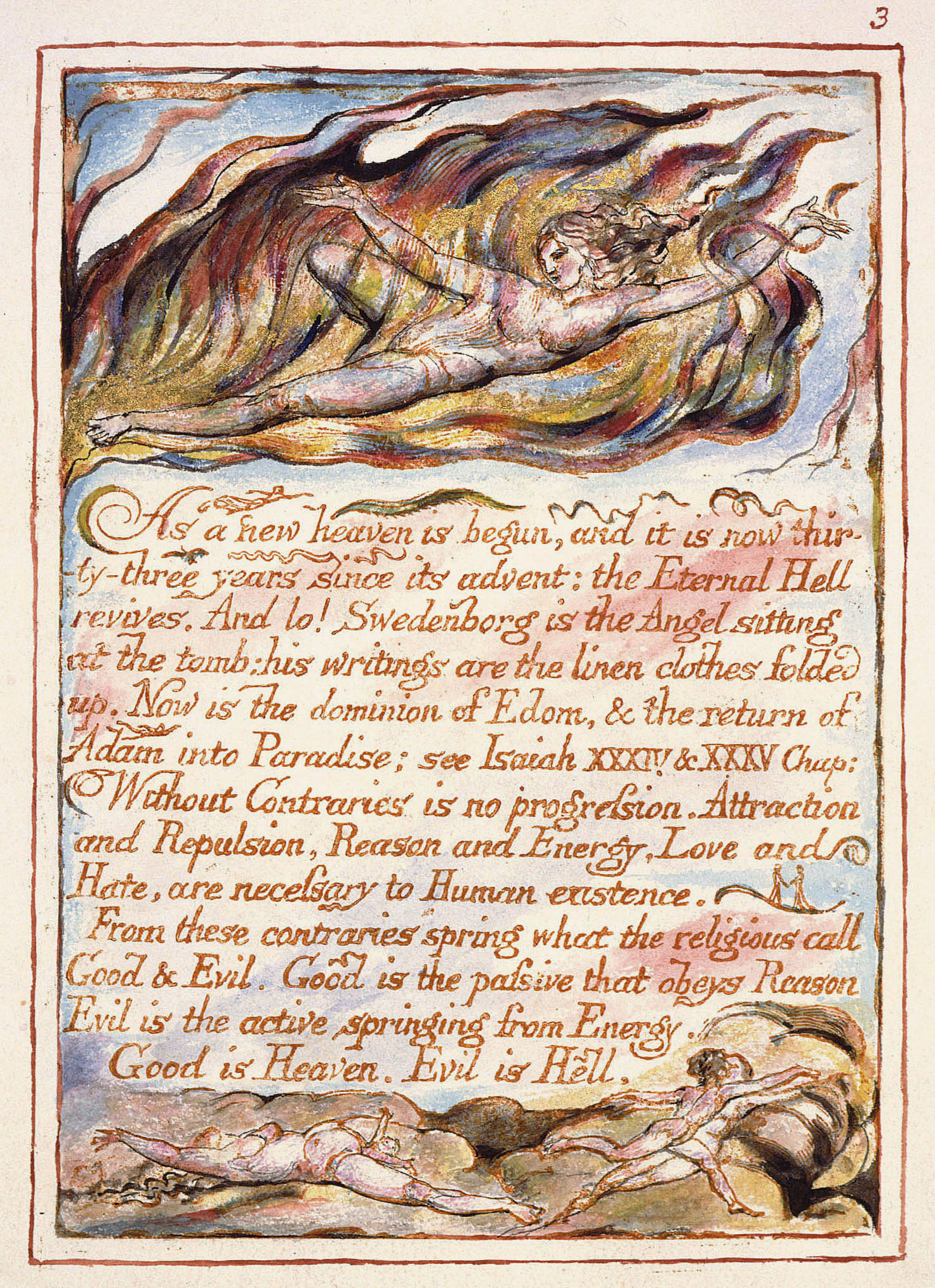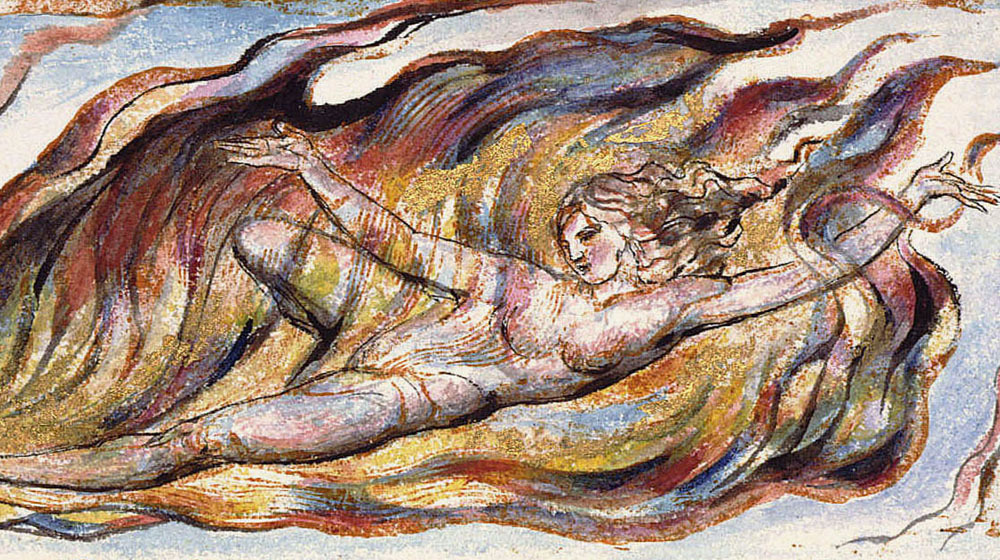Georges Bataille is perhaps most famous – or infamous – as the author of astonishing works of pornographic fiction, including Story of the Eye and Madame Edwarda, and as the founder of the secret society Acéphale. Less notoriously, Bataille’s essays in philosophical autobiography, social theory, and visual culture had an enormous impact on the poststructuralist generation of philosophers and cultural critics. Less well-known is the significant impact of William Blake on Bataille’s thought.
As a dissident Surrealist active in the political and aesthetic avant-garde, Bataille discovered Blake in the late 1930s and read his work assiduously throughout World War Two while engaged in underground publishing activities connected to the French Resistance. Bataille referenced Blake in many of his most important books and wrote articles about his work. He even translated a selection of Blake’s poems into French.
After the war, Bataille attempted to formulate a system of morality adequate to a world shaped by Auschwitz and Hiroshima. In this context, he read Blake alongside Nietzsche, the Marquis de Sade, and other members of the Devil’s party, as radical thinker of embodied energy and the logic of contraries, beyond good and evil. This lecture will recall this all-but-forgotten moment in the reception of Blake’s work among poets and philosophers in postwar France.

Stuart Kendall is a writer, editor, and translator working at the intersections of philosophy, poetics, media, and design. He is best known as the author of a biography of Georges Bataille published by Reaktion Books and as the editor and translator of several volumes of Bataille’s writings, including Inner Experience, Guilty, On Nietzsche, The Unfinished System of Nonknowledge, and The Poetry of Georges Bataille. His core interests include problems in political history, the fate of the sacred, and ecological imagination.

